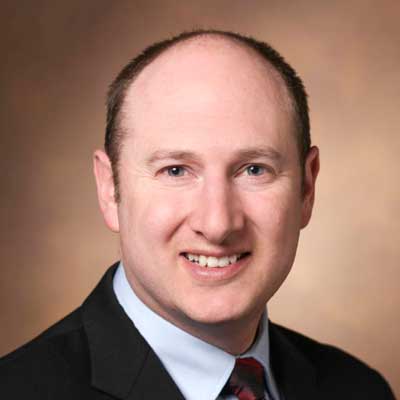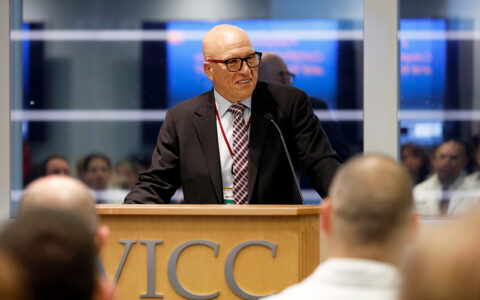Around the country, sports medicine specialists are responding to increased concerns about injury risk in youth sports with a heightened focus on proven protocols that enforce safety while encouraging play.
In a major step, Tennessee’s general assembly has on its legislative agenda to codify Safe Stars, the first safety rating system in the country for youth sports leagues. Developed by Alex Diamond, D.O., a sports medicine physician at Vanderbilt University Medical Center, and the Tennessee Department of Health, Safe Stars has the buy-in of over 40 community partners across the state, including every medical society associated with children and sports in Tennessee and all but one professional sports team.
“Having a ‘star’ serves as evidence that safety is a top priority for their league and coaches, and that if there is an injury or other emergency, the response will be quick and appropriate,” Diamond said. “Making bronze level compliance the law will help ensure that no children are left out of this fundamental safety net.”
“Making bronze level compliance the law will help ensure that no children are left out of this fundamental safety net.”
Certifying Comprehensive Safety
Several Tennessee schools and private youth leagues have applications in for consideration, while 40 have already attained gold status. Along with championing the legislation, the Safe Stars workgroup is exploring ways to improve engagement at the introductory level. “Our hope is to get everyone across the state at the minimum, standardized level and then provide them the tools and encouragement to achieve higher standards over time,” Diamond said.
“For the bronze level, we focused mostly on categories of highest risk, where 85 percent of the death and disability in youth sports occur: head and neck (concussion), heart (sudden cardiac arrest) and heat (weather-related emergencies),” Diamond said. “We also added some we felt were critical to a safe and positive experience.”
To attain bronze level, coaches go through a background check, develop an emergency preparedness plan and are trained in recognition of emergent symptoms and situations, including anaphylaxis and CPR/AED use. There is also a coach’s code of conduct to prevent harm, harassment, bullying, abuse and neglect.
Silver and gold levels are achieved with additional steps. These include pre-participation physicals, an on-site medical first responder and programs that promote healthy behaviors (like eschewing tobacco). All certification levels include policies for avoiding and reporting behaviors that may be signs of abuse.
Designing with Community Partners
In designing the program, Diamond considered the onus on stakeholders and sought and integrated their feedback. He piloted programs with coaches, league administrators and parents to get at what was most important, what was missing and what might be overly burdensome.
This meant being realistic about resources, Diamond said. “There are youth organizations that have numbers of administrative staff that rival those of some colleges. Then there are your backyard rec leagues which are wholly volunteer, and that is going to be a very different scenario.” To help groups of all sizes, the initiative directs participants to free resources to use in program development and training for all the Safe Stars criteria.
Evaluating the Program
After the Safe Stars launch, Diamond and the Department of Health spent a year and a half reviewing applications and program criteria, and they continue to do an annual review of progress and roadblocks. They are also in the process of collecting and analyzing policy, injury and mortality data to measure the program’s impact.
“Credible and impactful change can only occur with and be sustained by data.”
“Credible and impactful change can only occur with and be sustained by data,” Diamond said. “We need research to help guide this program, moving forward, as to what works, what doesn’t and why. With this information, we can provide the most benefit to not only our communities here in Tennessee but across the country.”






